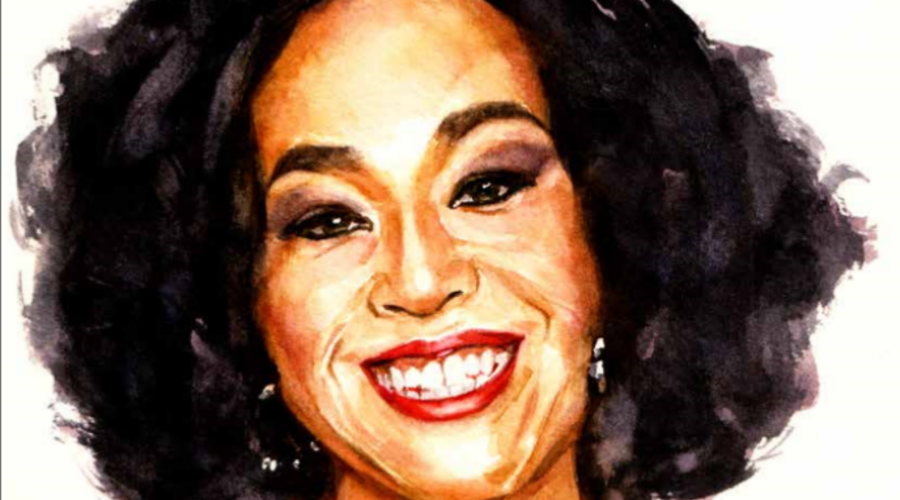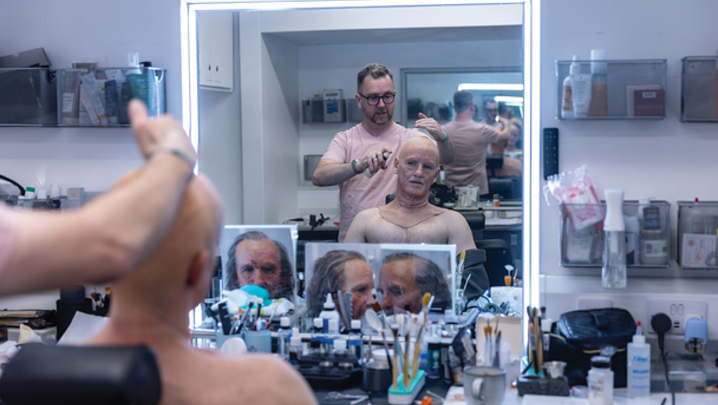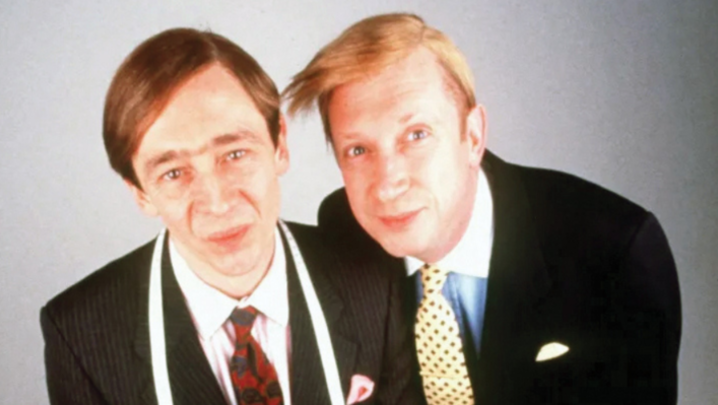Shonda Rhimes, creator of Grey’s Anatomy and Scandal, has set a new benchmark for TV storytelling, argues Simon Shaps.
In these giddy years of peak TV nothing is cooler, more feverishly consumed, than US television drama series that seem, unaccountably, to be taking the medium in new and exciting directions.
The widespread praise heaped on often dark and complex series, from The Wire to Breaking Bad, is, no doubt, due to sheer surprise: how did television – in particular, American TV –suddenly get so smart, so original, so good?
US TV, derided not so very long ago as a cultural desert, is now enjoying a golden age. Critics fall over themselves to lavish praise on the latest box-set treat.
David Bianculli, the respected TV critic for National Public Radio, recently published a panegyric entitled The Platinum Age of Television. The term “Golden Age” no longer suffices.
But another recent book, no less fulsome in its praise, perhaps inadvertently, makes a curious point about the creators of many of these shows. Difficult Men by Brett Martin anatomises the genesis of The Sopranos, Deadwood, The Wire, Mad Men, Breaking Bad, Six Feet Under and many others, without pausing to consider the question of gender contained in its title.
“I loved working with Shonda. She’s a stunningly talented showrunner and a defining American voice.”
David Chase, David Simon, Ed Burns, David Milch, Alan Ball, Matt Weiner, Vince Gilligan are the Men – difficult or otherwise – of the book’s title, with not a women in sight.
Which brings us to Shonda Rhimes, the hugely successful creator of Grey’s Anatomy, Scandal, How to Get Away with Murder and Private Practice, and founder of Shondaland, a production company that employs many hundreds of people.
Rhimes is black, a woman, and over the past decade, has made her reputation with a series of brilliantly commercial series, which don’t even make it into the index of Martin’s book.
Her shows are the tent pole that props up Thursday nights on ABC, the most competitive night of the week.
Former ABC Network President Paul Lee says of Rhimes: “I loved working with Shonda. She’s a stunningly talented showrunner and a defining American voice.”
So, if Lee is right and Rhimes is a defining voice, how come her contribution to this golden (or platinum) age seems to be overshadowed by the creators of the shows that feature in Martin’s book? Is she the wrong gender, or is she just making shows for one of the unfashionable networks?
Difficult Men reports that, back in 1993, when Steven Bochco and David Milch joined forces to create NYPD Blue for ABC, they offered the show as something of a departure for the network. “Part of Bochco’s pitch to ABC…had been the prescient notion that network TV needed to adjust its standards to compete with the coming threat of cable,” writes Martin.
The threat to the networks was, of course, far greater in the end than Bochco and the networks could have imagined. Today, cable is itself under threat from the on-demand players – Amazon, Netflix, Hulu and, no doubt, others to come.
So where does that leave network drama? When Alessandra Stanley, TV critic of The New York Times, writing about Scandal, says it is “more Aaron Spelling than Aaron Sorkin”, we presume that this is a put-down.
Not merely is the best stuff being done elsewhere – beyond network TV – but the high-rating shows are just commercial pap.
Thus, Rhimes finds herself in a curious position. Unlike many of the most talented writers, she has so far stayed loyal to ABC and network TV.
She has created a number of new shows, and performed the seriously underestimated task of keeping them creatively strong over many seasons.
Grey’s Anatomy is now in its 13th series, and Scandal is already up to Series 6. The constraints of network TV actually seem to make her shows sharper and more engaging than is sometimes the case with slow-burning serials, where the narrative unfolds over many weeks. Remember, she has to operate in just 40 minutes of airtime and needs to deliver self-contained stories each week.
Looking again at the opening episodes of Scandal and Grey’s Anatomy offers a masterclass in the creation of fictional worlds.
From the moment that Meredith Grey (Ellen Pompeo) wakes up in the arms of Derek Shepherd (Patrick Dempsey), unaware that he is head of neurosurgery at the hospital where she is about to begin work as a surgical intern, we are drawn into what the voice-over describes as “the game”, where a person “either has what it takes to play – or they don’t”.
The game is the pressurised and competitive journey that 20 interns are about to begin. It will involve personal triumphs and failures, lives saved and lives lost. Not all the interns will last the course.
In five expertly crafted minutes, having opened the series with Grey’s one-night stand with Shepherd, Rhimes introduces five or six key characters and the challenges they will face: the medical hierarchy at Grey+Sloan Memorial Hospital. She also hints at the revelation that comes at the end of the episode, when Meredith’s mother, a legendary surgeon, is revealed to be suffering from dementia.
The same compression and energetic storytelling is in evidence again at the beginning of Scandal, which takes us straight into the unique world of Olivia Pope (Kerry Washington), a former media adviser to the US President who runs her own crisis management company.
The firm is immediately plunged into working for a blood-stained socialite who arrives at Pope’s door, fearing that he will be charged with murdering his girlfriend. That story runs alongside Kerry’s personal instruction from the President to close down a Monica Lewinsky-style scandal that is about to engulf his Presidency.
In a session at Mipcom in October, Rhimes talked about her early ambition to be a great novelist, only to discover that “Toni Morrison already had that job”. She convinced her parents that she should apply to the writing programme at USC School of Cinematic Arts, rather than Harvard, “because it was more difficult to get into”.
After graduation, she wrote screenplays, including Princess Diaries 2, but says that she only began to think about writing for television when she was at home with her first child, and started to watch intensively, not least all the episodes of the first series of 24, back to back.
Having written a script about war correspondents that she couldn’t sell, she set out to find out “what Bob Iger wanted”. The answer was a medical series. And the result was Grey’s Anatomy.
There are currently five Shondaland shows in production: Grey’s Anatomy, Scandal, How to Get Away with Murder, The Catch and a project that had the working title Still Star-Crossed, described as a sequel to Romeo and Juliet. It is Rhimes’s first venture into period drama.
She is the executive producer of all five shows and still works as a showrunner on Grey’s and Scandal. Given her legendary attention to detail and the pace of US drama production, it is difficult to imagine her having the time to run more series.
But, in a Broadcast interview in October, Rhimes raised the prospect of creating an original drama series for UK television. She said: “It’s a new day in television. Working outside of the States is something I have always wanted to do.”
It would be foolish to bet against Rhimes succeeding, but the track record of US showrunners creating original series for the UK suggests that the odds are against her. Almost all the traffic – writers, producers, directors, on-screen talent – has been in the other direction.
Rhimes told the audience at Mipcom that she loved television because, more than feature film, it allowed her to “really do character”.
It is a cliché to argue that, if the great novelists of the past were born today, they would choose to write for television. But in her own telling, that is Rhimes’s story.
In choosing to leave the novel writing to Toni Morrison, she is building a treasure house of great popular drama series, full of subtlety and intelligence.
All of her ideas are original; all of them contemporary. Still only in her mid-forties, Rhimes shows no signs of flagging. As is evident in her desire to explore new markets.
When the complete history of this era of television is written, her achievements may well put those of the “difficult men” in the shade.
As she told students at Dartmouth College in a graduation address: “I ended up building an empire out of my imagination.”
Rhimes’ rise: her story arc
Born in 1970 and raised outside Chicago, she is the youngest of six children. Her mother is a college professor. Rhimes’ father worked as a university administrator.
Of her mother, she once said: ‘When people say “I’m too old” to do something or “I could never do that”, I’m always like, “My mom had six kids and then she became a professor – like, what are you talking about? Anything is possible!”’
Rhimes is unmarried and has two adopted daughters and one daughter by gestational surrogacy.
She started her TV career as a development assistant.
Her early scripts included feature films The Princess Diaries 2: Royal Engagement, Britney Spears vehicle Crossroads and co-writing HBO movie Introducing Dorothy Dandridge.
Prior to Grey’s Anatomy, Rhimes wrote a pilot for an ABC show about war correspondents, which never got made. Grey’s Anatomy was her first attempt at writing series drama.
Of Scandal she has said: ‘To me, the awesomest part of my job is I get to type “interior, Oval Office” and know that someone’s going to build me an Oval Office, and I get to go play in it.’
In 2015 she published a memoir, Year of Yes: How to Dance It Out, Stand in the Sun, and Be Your Own Person.
‘I get asked a lot how I manage to create such smart and strong heroines,’ she said in October at Mipcom. ‘But I don’t know any dumb and weak women. I’m writing heroines who talk like my mothers, my friends, like Betsy [Beers, executive producer at Shondaland] and me. I never felt that what they said was wild.’
Asked about her success in having lead roles played by minority actors, she said: ‘I choose not to examine that fact. We make TV characters look like normal people in the real world. We just try to tell the truth.’







